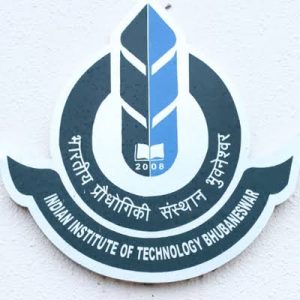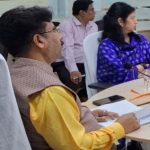Bhubaneswar: Research teams from IIT Bhubaneswar have been working on designing low power Integrated Circuits (IC) targeting IoT based sensing, monitoring and wireless devices. Efforts towards rising of research teams, and developing technologies started yielding results, and the first batch of IC’s have been successfully fabricated, recently.
The team headed by Dr M S Manikandan and Dr Srinivas Boppu has designed and got developed a ultra-low power CMOS data conversion integrated circuit (IC) with the support of the Special Manpower Development Program for chips to system design (SMDP-C2SD) of the ministry of electronics and information rechnology (MEiT) and got fabricated at the Semi-Conductor Laboratory (SCL), Mohali.
This indigenously developed IC is targeted for energy-efficient secured biomedical data transmission in internet of medical things (IoMT) and wearable body area networks (WBANs) to Edge or Cloud computing devices.
The team lead by Dr. Vijaya Sankara Rao Pasupureddi designed and developed a digitally intensive sub-sampling short range low-power RF front end IC for the IEEE802.15.4e standard targeting IoT applications. This chip includes several design innovations. This development activity too is funded by MEIT, the chip is being fabricated at TSMC, Singapore and likely to be received, soon.
Another effort sphere-headed by Dr. Debapratim Ghosh is developing microwave passive and active components, filters power-detectors aim at RF instrumentation and ASIC applications.
In the fields of sensors, internet of things (IoT) and some artificial intelligence (AI) applications, the challenge of extending the battery life is still persisting and creation of innovative low-power application specific integrated circuits (ASICs) assumes a lot of significance. Research teams from IIT Bhubaneswar have been working on designing low power Integrated Circuits (IC) targeting IoT based sensing, monitoring and wireless devices. Efforts towards rising of research teams, and developing technologies started yielding results, and the first batch of IC’s have been successfully fabricated, recently.
The team lead by Dr. Vijaya Sankara Rao Pasupureddi designed and developed a digitally intensive sub-sampling short range low-power RF front end IC for the IEEE802.15.4e standard targeting IoT applications. This chip includes several design innovations. This development activity too is funded by Meity, the chip is being fabricated at TSMC, Singapore and likely to be received, soon. Singapore and likely to be received, soon.
Another effort sphere-headed by Dr. Debapratim Ghosh is developing microwave passive and active components, filters power-detectors aim at RF instrumentation and ASIC applications.
Speaking on the successful developments, Prof R V Raja Kumar said, “These semiconductor chip developments assume significance on a number of counts. These are coming from the institute after putting a lot of hard work for the last four years in building teams, expertise and carrying on the design and development work as a part of our vision to create a sustainable chip design and fabrication echo system at the institute and its hinterland. The institute has plans to further enhance the capabilities and taking it forward in the coming years”.
IC technology is also symbolic to growth of high technology and these developments from the institute would give confidence to the industry and catalyse the IC design activity and would help putting Bhubaneswar on the map of this technology. With our Hon’ ble Prime Minsiter’s vision of Make in India and the Union Cabinet’s historic approval of ₹76000 crore investment in this strategic area are certainly likely to open up opportunities for chip designing manufacturing towards finding cost-effective solutions in Health, Consumer Electronics, Communication, Defense Security, Automobiles, Environments, etc., and job creation.






